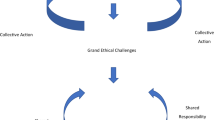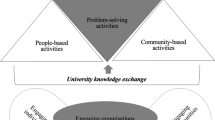Abstract
Professional plumbers play an essential role in the implementation of water efficiency. If North America is to achieve high water efficiency standards and more ambitious plumbing codes, plumbers will need to be actively included in the water efficiency discussion. Repositioning the industry will required a cultural shift because the plumbing community has been mostly ignored in discussions of the larger environmental agenda and priorities. This repositioning will require substantial rethinking and retraining. New knowledge will need to be transmitted about emerging water efficient technologies, public policies and practices, as well as the rationale for use in residential and Industrial, Commercial, and Institutional (ICI) sectors. The GreenPlumbers Program (GPP) initiated this knowledge transfer process. Originating in Australia and expanded to the United States, the GPP is a national training and accreditation program for professional plumbers. Their focus has been on upgrading skills and awareness of water efficiency, conservation, and the professional plumbers’ roles in the contemporary environmental context. In this paper we report on the efficacy of the GPP’s curriculum and the process of transferring explicit water efficiency knowledge. Semi-structured interviews and a survey were used to gather the data. We considered how the program participants incorporated the GPP curriculum into their ‘day-to-day’ practices and operations post-certification. We also investigated participants’ motivating factors and cross-referenced these findings to their overall assessment of the program. Recommendations focus on how the GPP can best influence and contribute to a more comprehensive water efficiency agenda.
Similar content being viewed by others
References
Al-Jayyousi O (2004) Greywater reuse: knowledge management for sustainability. Desalination 167:27–37
Ambrosini V, Bowman C (2001) Tacit knowledge: some suggestions for operationalisation. J Manag Stud 38:811–829
Augier M, Vendelø MT (1999) Networks, cognition and management of tacit knowledge. J Knowl Manag 3:252–261
Barberán R, Arbués F (2009) Equity in domestic water rates design. Water Resour Manag 23:2101–2118
Baumann DD, Boland JJ, Sims JH (1984) Water conservation: the struggle over definition. Water Resour Res 20:428–434
Brooks D (2006) An operational definition of water demand management. Int J Water Resour Dev 22:521–528
Carrillo P (2004) Managing knowledge: lessons from the oil and gas sector. Construct Manag Econ 22:631–642
Davenport TH, Prusak L (1998) Working knowledge: how organizations manage what they know. Harvard Business School Press, Boston
Environment Canada (2001) Urban Water Indicators: Municipal Water Use and Wastewater Treatment. Environment Canada, Ottawa
Environmental Protection Agency (2010) About | WaterSense | US EPA. United States Environmental Protection Agency. http://www.epa.gov/watersense/about_us/index.html. Accessed 18 April 2010
Frappaolo C (2006) Knowledge management. Capstone Publishing Ltd, West Sussex
Gertler MS (2003) Tacit knowledge and the economic geography of context, or the indefinable tacitness of being (there). J Econ Geogr 3:75–99
Gombos, S (2011) Personal communication: September 29th, 2011. Manager of Water Efficiency, Region of Waterloo
GreenPlumbers (2010) Welcome to GreenPlumbers® USA | GreenPlumbers. http://www.greenplumbersusa.com. Accessed 1 February 2010
King K, McGrath S (2004) Knowledge for development? Comparing British, Japanese, Swedish and World Bank aid. HSRC Press, Cape Town
Kirk, D (2011) Personal commuication—September 29th, 2011. Director of Green Plumbing Curriculum, Green Plumbers Training & Accreditation, The IAPMO Group
Lehtonen, S (2011) Personal communication—September 29th, 2011. Senior Director, Environmental Education, Green Plumbers Training & Accreditation, The IAPMO Group
Mårtensson M (2000) A critical review of knowledge management as a management tool. J Knowl Manag 4:204–116
Meagher, D (2011). Personal communication—September 29th, 2011. Region of Waterloo—Water Services Division
Moglia M, Cook S, Sharma AK, Burn S (2011) Assessing decentralised water solutions: towards a framework for adaptive learning. Water Resour Manag 25:217–238
Pearson LJ, Coggan A, Proctor W, Smith TF (2010) A sustainable decision support framework for urban water management. Water Resour Manag 24:363–376
Polanyi M (1966) The tacit dimension. Routledge & Kegan Paul, London
Porter ME, van der Linde C (1995) Green and competitive: ending the stalemate. Harv Bus Rev 73:120–135
Rogers P, de Silva R, Bhatia R (2002) Water is an economic good: how to use prices to promote equity, efficiency and sustainability. Water Pol 4:1–17
Thompson SC, Stoutemyer K (1991) Water-use as a commons dilemma—the effects of education that focuses on long-term consequences and individual action. Environ Behav 23:314–333
Vickers A (2001) Handbook of water use and conservation: homes, landscapes, businesses, industries and farms. WaterPlow Press, Amherst
Wenger E, Snyder WH (2000) Communities of practice: the organizational frontier. Harv Bus Rev 78:139–145
Wolfe SE (2008) Capacity, capability, collaboration and commitment: how social networks influence practitioners of municipal water demand management policy in Ontario, Canada. Environ Pract—J Natl Assoc Environ Prof 10:42–52
Acknowledgements
The authors extend their appreciation to the reviewers and to the Green Plumbers program for their participation in this study.
Author information
Authors and Affiliations
Corresponding author
Appendices
Appendix 1
Appendix 2
Rights and permissions
About this article
Cite this article
Elton, K., Wolfe, S.E. Water Efficiency and the Professional Plumbing Sector: How Capacity and Capability Influence Knowledge Acquisition and Innovation. Water Resour Manage 26, 595–608 (2012). https://doi.org/10.1007/s11269-011-9934-7
Received:
Accepted:
Published:
Issue Date:
DOI: https://doi.org/10.1007/s11269-011-9934-7




